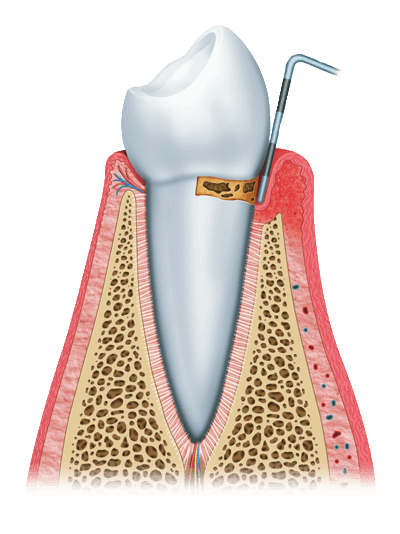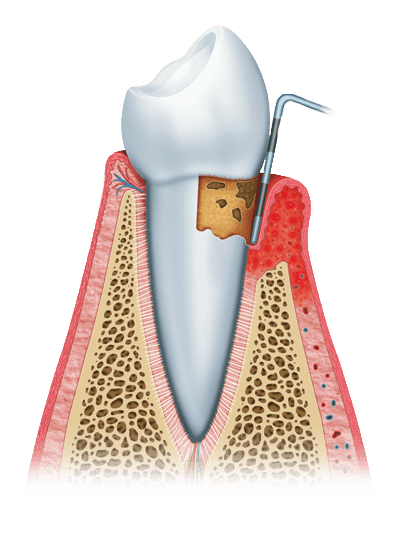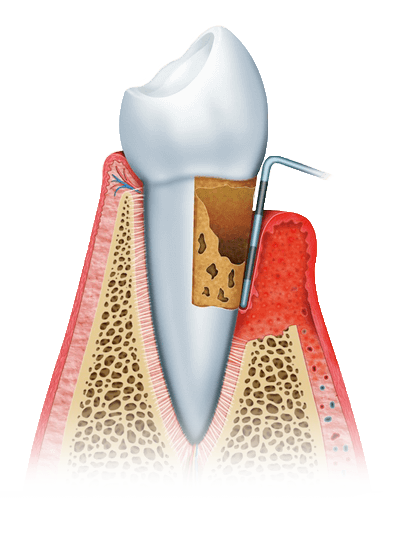

Initially, you may observe bleeding gums once in a while and not think much about it. Many people with gum disease ignore the painless symptoms such as bleeding gums, gum recession and bad breath. Early signs should not be ignored. With early treatment you can prevent further damage.

Most people in the United States do not realize that this progressive oral infection is related to many systemic diseases. Heart disease, stroke, pancreatic cancer and diabetes are some of the systemic health risks with a correlation to gum disease. Premature birth and low birth weight babies are also a risk for mothers-to-be with periodontal disease. Diabetics have a more difficult time keeping their blood sugar controlled, and gum disease tends to advance more rapidly in patients with diabetes or other diseases affecting the immune system.
Dr. Donna Miller, Dr. Austin Green and Dr. Michelle Hinds want patients to recognize the stages of advancement of gum disease. Of course, recognizing early signs and seeking treatment right away may help prevent the advancement and the damage it causes. The three stages of gum disease are:

The earliest stage called gingivitis is caused by bacterial and plaque buildup on your teeth. You may notice inflamed and bleeding gums. Many patients do not experience pain at this point and often delay treatment. Gingivitis may be reversed at this stage with thorough homecare and regular professional cleanings.

Without professional treatment gingivitis may advance to periodontitis. At this stage the tissues supporting the teeth can show signs of deterioration. Pockets that trap bacteria may form between the teeth and connective tissue, deepening the damage. We urge immediate treatment in these cases to prevent further damage and potential tooth loss.

With advanced periodontitis the pocketing deepens and bone damage has progressed. You may notice that your teeth are shifting or feel loose. It is imperative to seek treatment at this stage. In many cases patients with advanced periodontitis may require surgery in order to save their teeth.
I understand the information disclosed in this form may be subject to re-disclosure and may no longer be protected by HIPAA privacy regulations and the HITECH Act.
